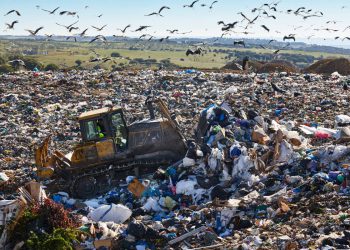By Richard Stanton, University of Sydney
The media have the power to shape the future socio-political course in Australia.
How that will play out depends upon a number of factors, not least of which are the quality of the journalism training offered by universities and the quality of the journalism itself offered by those who own the journalism businesses.
In 2010, during the federal election campaign, independent candidate Tony Windsor made a remarkable statement about the Australian media.
Mr Windsor, as the weekly guest on Insiders, had been asked by Barrie Cassidy if he had been persuaded by various stakeholders, including the media, to make a decision on which side he might support …
Cassidy: “And what about the media pressure? There’s been a fair bit of that as well and right to the point of some page one editorials. Do you feel any pressure from that area?”
Windsor: “Oh no. It’s obvious that different political interests have got their pen pushers out there running their lines to try and create circumstances. But I’d just say to them, I think you’re dealing with a different ball game here. This isn’t Labor versus Liberal and siding with one side and the other. And trying to make some of the independents look something they’re not doesn’t help their political agenda in a sense. But I’ve been around for a while. The media can do what they like. I have to make a decision and I won’t be basing it on some of the rubbish that’s in the papers.”
Indeed, the media in Australia can pretty much do what they like. There is no real ‘watchdog’ to keep them in check, other than legislation such as the Trade Practices Act.
Recently the Racial Discrimination Act also came into play as a proscriptive force.
But is Windsor right? Is his newspaper filled with rubbish?
Is this why journalism — despite being a highly respected degree program available at Australia’s leading universities — is held in low esteem by the public?
Windsor, of course, was making the best of a publicity opportunity during the election campaign.
Journalism is alive and flourishing in Australia across all media – new and old school. It is attuned to generational change, socio-political change and economic change.
But that doesn’t mean it has got everything right. I’ve argued elsewhere that the global news media had a really strong opportunity to change their business models around 10 years ago, just before September 11, 2001. That catastrophic event shook the foundation of the western world and forced the news media back into old school channels that it had begun to abandon. It has taken 10 years to reclaim that ground but it is not yet fully recovered.
As part of a re-invigorated push towards the development of new models of journalism the Australian media have surfaced as leading actors.
The Australian media are relatively free from regulation while at the same time they have no constitutional protection as in the United States.
There are specific broadcast regulations framed around a number of authorities including the Australian Communications and Media Authority. ACMA’s responsibilities extend to the protection of media consumers.
Inconsistent media regulation has contributed to a concentration of ownership.
Politicians hold the view that media owners can make a strong contribution to their re-election and the capacity to hold power, so it is not unusual for the public to believe media owners such as Rupert Murdoch influence policy debate.
But is this truly the case? Do the Australian media do what they like and sod the consequences? Is journalism in Australia really that bad? Do the news media compete with democracy for power, influence and control of national and international strategy selection? Are the news media more concerned with publicising their own
opinions and strategies than with publicising the opinions and policies of elected representatives, governments, and corporations?
There are all sorts of comments made about the media and most often they are negative. Over the past few years in a variety of situations I have heard people say “the media have a lot to answer for”, “it’s all the media’s fault”, bloody media ratbags, “no idea how much trouble they cause”, “bastards, should all be shot”, “no way I’d be bothered reading a newspaper these days, it’s all crap”.
Yet the same people who make these comments spend a lot of time absorbing media news and opinion. They listen to Alan Jones and Neil Mitchell and agree that what they say is exactly what’s going on — “the government’s too weak to stop boat people”; “the government should fix the health system”; “the government bungled the pink batt scheme and the computers in schools programs”.
They read their local free newspaper cover to cover to see if there is something in it about their friends, their local community organisation or their sports teams.
To them, these media are not the media that they like to condemn. They feel as if they know these media personalities and the local newspaper.
Much of this like/dislike split has to do with the urbanisation of the Australian population. A regional or rural citizen won’t badmouth the local regional radio station because that’s where they get their regional news.
It is where they are likely to hear their local candidates talking about their proposed policies or community ideas, where they will hear the stock report (cattle and sheep, not industrials and mining) and the local
council plans.
For them, and for the urban citizen it is the networked media that poses the problem. It is the national newspaper which shows no real interest in local issues, the television channel which is good for tea-time drama and Sunday night movies (or was) but not news; it is the way in which the mainstream media present all news as bad new, all news as death and destruction (my students all know, if it bleeds it leads).
Journalists and reporters around the world investigate facts about issues and events, then write and file copy for print, broadcast and narrowcast. For copy to have value in editorial terms it must be relevant to its medium’s consumers, fit the style of the medium and be written to a length that fills the available space.
These criteria seem elementary but when they are considered against the requirement to create a new ‘content’ each day for the same ‘product’ — imagine Kellog is required to change the content of its cereal packets each morning — then the job of the journalist becomes more interesting.
Added to this is the requirement of the journalist to act objectively when investigating issues and events. This means moving outside the frame of being an involved citizen to become an observer rather than a participant.
Instinctively, when reporters move outside their citizen frame, to avoid isolation, they begin to frame the issue or event under investigation in some way which is familiar to them.
They try to imagine the issue or event as it relates to their own position within a particular social, political and economic frame. The frame they choose, while it must be in alignment with that of the medium for which they are investigating, also carries the weight of their own opinion, as they investigate and as they write.
This may sound contradictory to the notion of objectivity but it is embedded in the investigation and writing process rather than appearing as an outward motivator. Very few journalists and reporters are capable of avoiding this self framing process.
It is an instinctive mechanism that substitutes for the isolation of operating outside the frame of citizen. Modern investigation however, is less evident globally, giving way to a style of reporting that is based less on the facts of issues and events than on the provision of information by third parties that can be re-written or re-imagined as news.
The tendency is for a single point of investigation to become widespread and to become the subject of not only news but also of editorial, op ed opinion, talk back radio television debate and blog troll chatter.
Journalistic investigation questions sources and source motivation, provides evidence of accuracy, and seeks balance. Despite the availability of technology fewer resources are available for reporters to pursue investigative work given the constraints applied by the reduction in number of reporters compared with the numbers employed a generation ago.
To be effective journalists must do less investigative work but still maintain a high level of content filing. In Australia, for this process to succeed, there has been a shift in the way journalists treat investigation and thus, the framing and writing of news.
Where once a journalist may have worked across general news, evolving a specialisation in some minor way over a period of time due mainly to an inherent interest in the area, 21st century journalists without specialisation are rare.
Journalists have become experts in narrow fields in much the same way as academics – they know a great deal about relatively insular topics.
Specialisations range around law, economics, politics and science with sub groupings such as finance, health, environment and education highly valued. Specialisation however, brings with it a set of problems that journalists must deal with if they are to maintain balance.
One of the problems is the reliance on other specialists as sources. A specialist journalist gains knowledge of issues and events through the pursuit of individual research but also from the supply of information by interested parties.
Information about health for example, may be sourced from a disparate array of organisations or individuals from the largest, such as the World Health Organisation to the relative smallest, a reporter’s local town community hospital, for example.
Similarly, information that can be recast as news about environmental issues and events can be obtained from activist groups, governments or academic sources. In all cases, it is the job of the journalist to investigate the issue or event for news value and balance, but it is also to investigate the source.
Thus journalists frame news in economic and political terms because the alternatives are less obvious or because they clash with dominant values. The dominant values of the marketplace are politics and economics. Clashes occur when organisations attempt to frame issues and events in cultural or social terms.
Journalists have become narrowly focused in accordance with the main driver of economic rationalism: cost cutting They have difficulty in seeking to investigate ideal policy when acceptable policy is close by.
They readily accept professional norms of what is news rather than investigating issues and events outside a conventional framework. They focus on the success of an issue or event rather than the veracity of the information being presented. It’s the same for other professions. Specialisation is now the norm.
Journalism provides the necessary connection between most of us and how we interpret information. We take in information and ways of thinking about it from a variety of news media outlets including newspapers, radio, television, the internet, magazines, newsletters, and billboard advertising.
Access to most outlets, including the internet, is widespread. While narrowcast online is growing rapidly, radio occupies an important position as the main source of information for motoring commuters while television is still the preferred medium for obtaining news as entertainment in the majority of households from
mid evening onwards.
Newspapers account for a large percentage of political news and analysis actively sought by consumers. Magazines still supply lengthier analyses of issues and events, and newsletters and journals fulfill the remaining requirements of a public actively seeking rigorous analysis and comment. More and more of these are becoming available in hard copy and online.
There are two big problems for journalism and the owners of businesses that deliver journalism.
The first is the question of how to get the average person — the one who forks out a buck every day for a copy of the Daily Telegraph in Bermagui, for example, to ditch the hard copy in favour of investing in a tablet and a provider.
The second is a little harder. Assuming the hardware and provision of service drops significantly so that it has an acceptable price point for say, an 83 year old pensioner who will sacrifice her paper delivery if she can go back to bed with a cup of tea and her i-pad, what will she expect to see and read each day?
She will expect to see exactly what she sees in the hard copy. She will expect to read what she reads in the hard copy.
But it’s not that easy. Her knowledge gap is enormous. She knows nothing of how a newspaper is produced let alone how it works in space.
It’s not enough for the future of journalism and its platforms to rest on generational change. Journalism must demonstrate that it is what it thinks it is — dynamic, objective, valuable and democratic.
Richard Stanton is the author of a number of books on the media including Do What They Like: The Media in the Election Campaign 2010 (Australian Scholarly Publishing), and All News Is Local: the Failure of the Media to Reflect World Events in a Globalized Age (McFarland & Co).
He teaches corporate and political communication at the University of Sydney.












